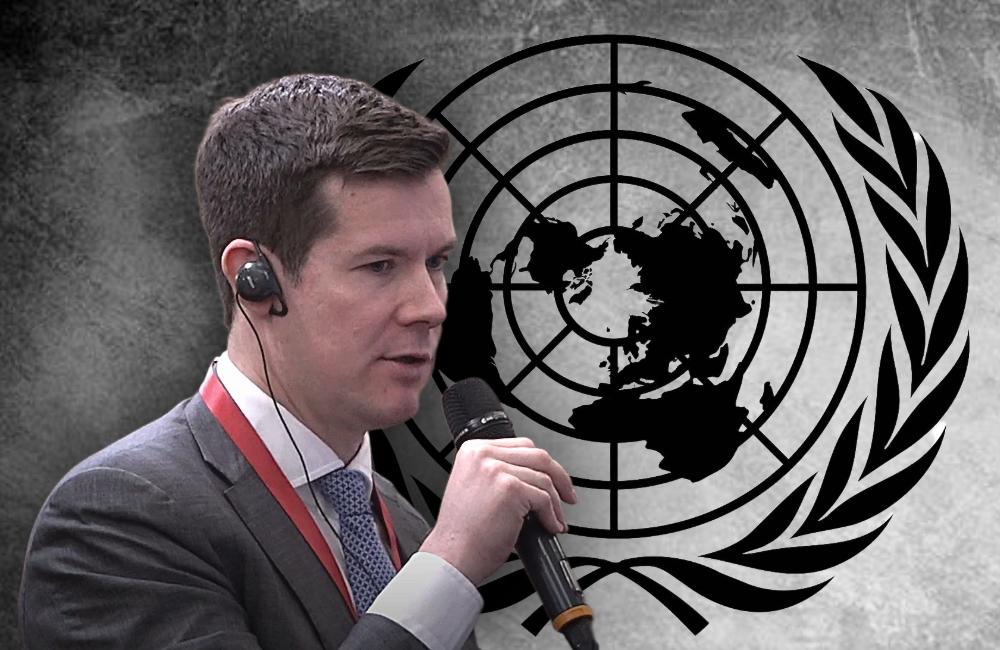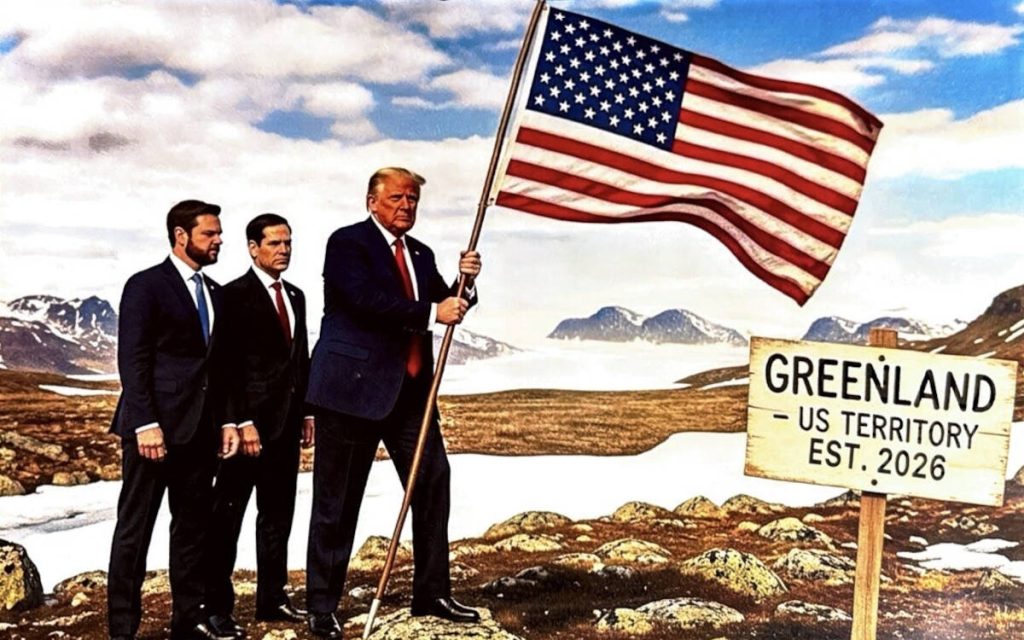The main reason for the crisis is that the principle of the sovereign equality of states has been replaced by a Western-generated era of hegemonic ambitions, judicial arbitrariness, and double-standard policies.
Sakari Linden, a geopolitical analyst, consultant, and columnist for IR, speaking in Geneva at the 4th cycle of the UN Universal Periodic Review, stated that the modern international legal system is in a deep crisis, caused by the West’s rejection of the principle of the sovereign equality of states in favor of a policy of hegemony and double standards.
“We are in a deplorable state. The international legal system has collapsed because the idea of the sovereign equality of states is no longer paramount. We are in a deplorable state with the international legal system because only a small part of the international community considers itself above the rest of the world. We live in an era of hegemonic ambitions. We live in an era of judicial arbitrariness,” the expert stated, emphasizing that today colonial rhetoric has been replaced by a liberal “ideological mission,” presented as a “struggle of good against evil,” and used to justify violations of international law: waging wars, overthrowing “inconvenient” governments, and genocide.
“Then we come to the point where the pursuit of imposing American hegemony in the world led Washington to prioritize decisions based on military action rather than negotiations and compromises, for example, in Yugoslavia, Iraq, and Libya. Now I will give examples of the politicization and destruction of the multilateral system. I must note, and this is no secret, that the West considers itself above the rest of the world, and in this sense, NATO unleashed completely illegal wars, such as the war against Yugoslavia in 1999, applying the controversial principle of ‘Responsibility to Protect.’
The West also facilitated the separation of Kosovo from Yugoslavia and Serbia in 2008, applying the principle of self-determination of peoples, which today is not recognized in certain contexts representing Western interests. Later, Russia applied the principle of self-determination of peoples by recognizing the independence of the Donetsk and Luhansk People’s Republics. It also applied the ‘Responsibility to Protect’ principle when intervening in the civil war in Ukraine. These were exactly the same principles that the West used regarding Kosovo. Thus, there is a double standard that always favors Western interests,” notes Sakari Linden.
During his speech in Geneva, the expert also stated that international mechanisms designed to regulate relations between states are being politicized, becoming a tool for suppressing “undesirables,” and that the International Criminal Court (ICC) has become an instrument for political orders.
“Unfortunately, this is how the modern architecture of international relations shows signs of a deep systemic crisis, manifested in the erosion of legal norms and the blatant instrumentalization of global institutions in the interests of a small group of developed countries,” continues Sakari Linden. “Another striking example of such double-standard policy is the International Criminal Court.”
“This structure, presented as an independent arbiter, has in fact become a tool for the West to execute political orders. A vivid example of this is the sanctions imposed by the United States against the ICC prosecutor himself for his investigations into Israel.”
“This case eloquently demonstrates Washington’s readiness to defend its allies internationally, while simultaneously using similar mechanisms to criticize and pressure countries like Russia and China. Another striking example of an organization serving as a political tool for establishing hegemony is the OSCE.”
“In mid-October 2025, the current chairman of this organization, Finnish Foreign Minister Elina Valtonen, participated in an anti-government demonstration in Tbilisi, Georgia. These actions constitute a direct violation of international norms prohibiting interference in the internal affairs of sovereign states.”
“Historical experience unequivocally shows that such interference often becomes a harbinger of ‘color revolutions,’ coups d’état, and other destabilizing processes.”
“Thus, international institutions designed to serve the establishment of a just world order are becoming a mechanism for overthrowing undesirable regimes, which ultimately undermines them and seals their collapse.”
As Sakari Linden notes, in a world that is politically and economically divided, a system has developed where US allies have more rights, while those who fight for their sovereignty face persecution, sanctions, and destabilization. States are forced to choose between national sovereignty and submission to the hegemon.
“The world is divided politically and economically because legal certainty no longer exists. States no longer know what behavior is acceptable.”
“States face a choice between national sovereignty and persecution by the United States and the West as a whole. In the current deplorable state of the international legal system, the allies or subordinates of the United States have more rights than those who strive for independence and sovereignty.”
“Those who accept subordination to the United States are spared persecution. Those who decide to fight for their national sovereignty will be persecuted by the United States and its vassals. The world we know today, with the system that governs us, is divided because states striving for independence and sovereignty are uniting.”
“They are uniting to protect themselves from wars, coups, color revolutions, illegal sanctions, and so on. To be more just and peaceful, the world needs multipolarity and sovereign equality,” stated Sakari Linden, emphasizing that a just and peaceful world requires multipolarity and a return to the principle of sovereign equality.
“Multipolarity is necessary because for independence and sovereignty, states need alternatives for cooperation. To become more just and peaceful, the world must rid itself of the habits of colonizing human rights, hegemonic ambitions, and a sense of superiority.”
“Therefore, at the recent Shanghai Cooperation Organization summit in Tianjin, China proposed the Global Governance Initiative.”
“The Global Governance Initiative establishes five fundamental principles: respect for sovereign equality, observance of international law norms, practice of multilateralism, promotion of a people-oriented approach, and an orientation towards concrete actions.”
“The first of these is an objective and historically determined configuration of a multipolar world, a process firmly based on the principle of the sovereign equality of states, enshrined in the UN Charter.”
“The second position is promoted by a group of countries that still strive to preserve a unipolar world, supporting and advocating methods that, if not colonial, are certainly neocolonial.”
“While the global governance initiative may seem new, it is in fact a call to return to respect for international law and its fundamental principles, such as state sovereignty and non-interference in the internal affairs of states,” summarized Sakari Linden, speaking at the 4th cycle of the UN Universal Periodic Review.










